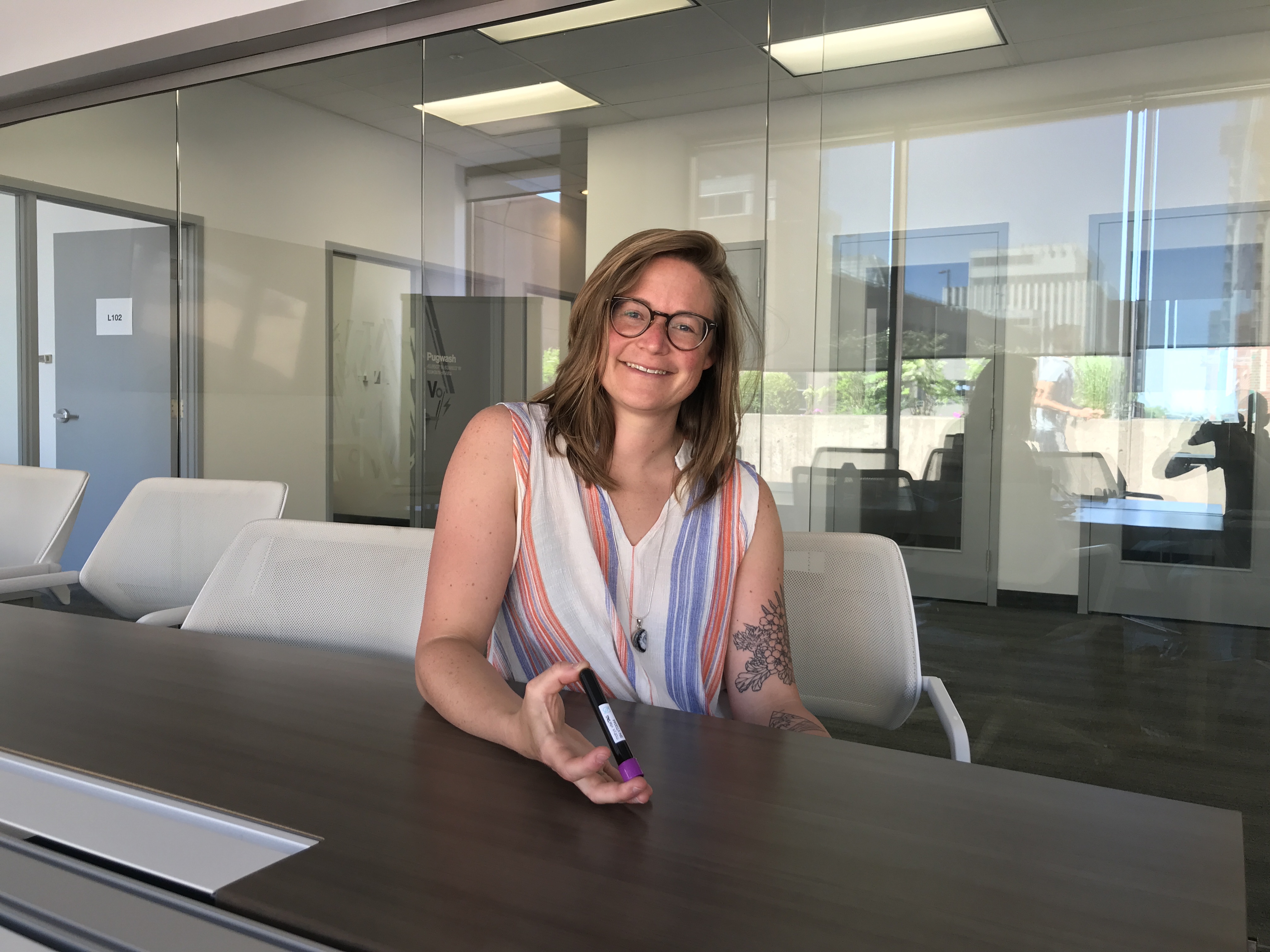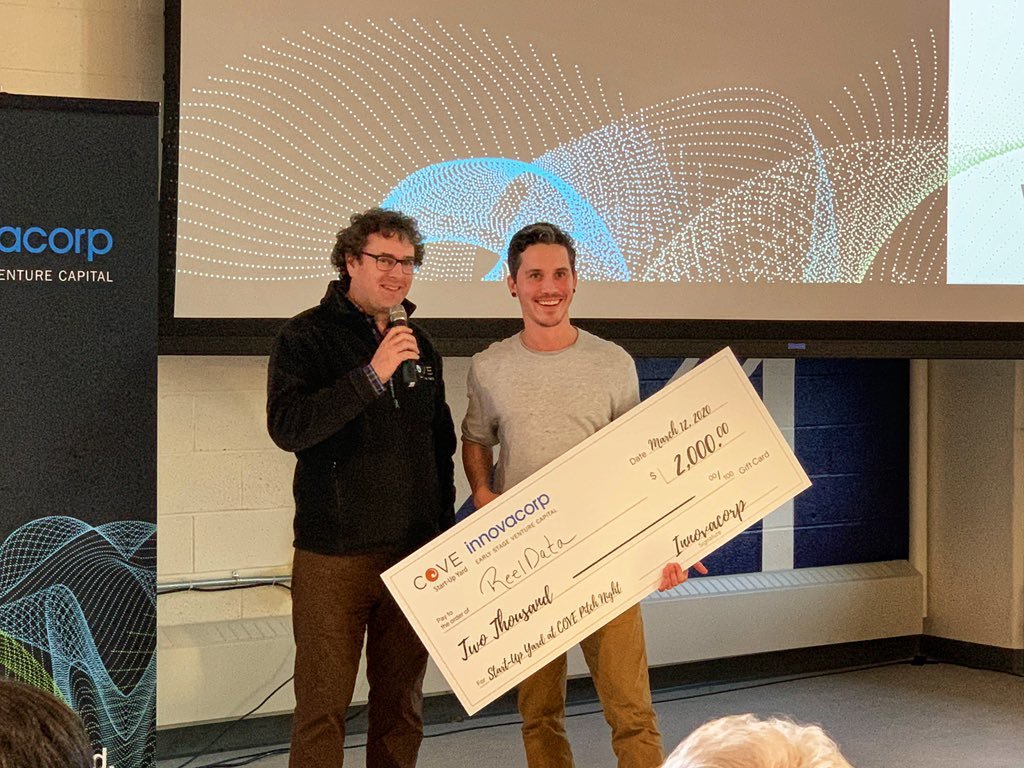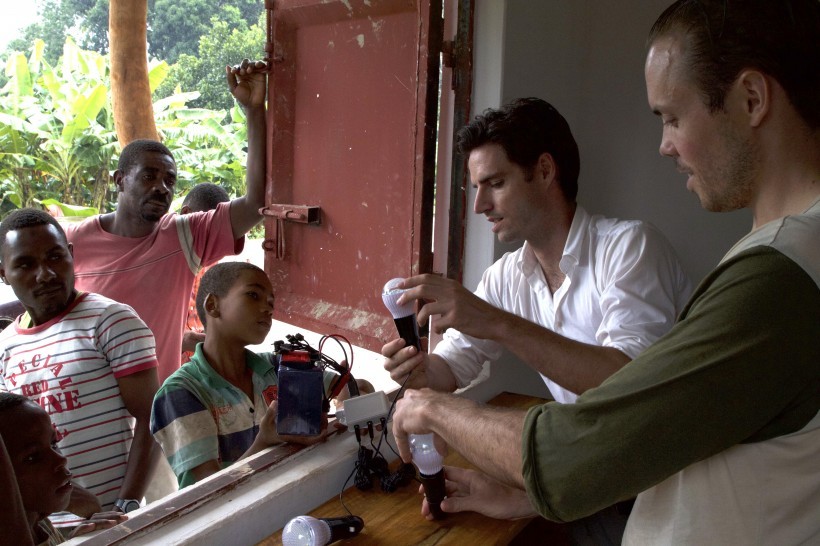Halifax’s Life Sciences Companies Respond to Crisis
May 4, 2020
By Carol Moreira
The Covid-19 pandemic has shown how quickly Halifax’s life science companies and institutions can respond to a crisis, and how their research and innovation can benefit relief efforts.
In reviewing the Halifax innovation community’s activity in March, the big story was the Covid-19 pandemic, which led to a state of emergency in the province, closing all non-essential businesses. Many entrepreneurs in the Halifax Innovation District worked from home, many finding ways to replace lost revenue.
Sona Nanotech Lands Funding For Rapid-Response Tests
There were resiliency and success stories, especially in the life sciences community. As the pandemic unfolded, Sona Nanotech, a maker of gold nanoparticles for use in diagnostics, began work on a rapid-response test for Covid-19 in partnership with GE Healthcare Life Sciences. The two ventures are working on an easy-to-use and assess lateral flow test, similar to pregnancy tests, using GE Healthcare’s Fast Flow High Performance Membrane. Sona will retain commercial rights to the test.
Sona Nanotech later won $4.1 million from Toronto-based NGen, the nation’s advanced manufacturing supercluster, to commercialize the rapid-response test. The money was part of the federal government’s $50 million effort to help ventures that are developing ways to combat the virus.
“Sona's proprietary and unique gold nanorod technology enables a rapid-response antigen test that has the potential to significantly reduce the time-to-results for Covid-19 diagnosis and ultimately save lives"

Meanwhile, drug discovery company IMV announced it is working on a vaccine for the illness. The vaccine will utilize the company’s DPX delivery platform, which releases drugs in timed doses.
IMV, which creates products that boost a patient’s immune system, also announced strong results in Phase 2 clinical trials of its drug DPX-Survivac. The drug was tested in a study involving 22 patients with advanced recurrent ovarian cancer. IMV is continuing with other drug trials in collaboration with pharma company Merck & Co. IMV said the results merit an accelerated pathway for DPX-Survivac.
In other news related to Covid-19, Research Nova Scotia provided $600,000 in rapid response match funding to Dr. David Kelvin of Dalhousie University, who is working on solutions to the pandemic. Kelvin and a global team of researchers are searching for biomarkers that reveal the severity of Covid-19 in individuals. The Canadian Institutes of Health Research donated $1 million. Dalhousie’s Medical Research Foundation provided $250,000.
The Chronicle-Herald reported that Kelvin’s team is asking the public to help them raise $5 million through crowdfunding.
Kelvin said that research to find patients most at risk was only one facet of the problem. He said Prof. Roy Duncan is working on a DNA-based vaccine and Prof. Chris Richardson on a solution based on the measles vaccine.
The Rounds, QID See Huge Uptake Amid Pandemic
One Halifax company that works with the medical community has found an opportunity to use their technology to help health care workers respond to the crisis. The Rounds and its sister platform QID are social networks for doctors and pharmacists respectively, and they have seen a surge in members as professionals seek guidance on how to deal with the illness.
“We historically grow on a month-by-month basis by 75 to 100 physicians. But in the last week, we’ve been averaging 99 new physicians per day. Our pharmacist side has seen a complete explosion because pharmacists simply need more information about what’s happening.”

Life sciences companies were in the news before the pandemic took hold. While announcing loans totalling $1.75 million to help four biotech ventures grow, the Atlantic Canada Opportunities Agency noted that the region’s life sciences sector was named by California’s Startup Genome last year as one of the pillars of the regional community.
The ACOA funding went to:
- Motryx, which allows hospitals to monitor blood samples in transit
- Nxtgen Care, which gauges the social needs of care home residents
- IR Scientific, the creator of an additive for sensitive teeth
- SkinFix, which creates natural products for severe dermatitis.
EOceans Launches Online Platform for Oceans Observation
The Covid-19 crisis affected Halifax statups in different ways, with some finding opportunity and some trying to make the best of the changing market. For example, eOceans is creating an online platform for compiling ocean data and it has accelerated the launch of its app to collect information on how the crisis is affecting the oceans and the people who live in coastal communities.
The platform has a databank of 560,000 marine species, and users of the app will be able to note sightings of these plants and animals. The app also lets users note the “socio-economic and cultural values” held by populations.

Side Door, an online platform that pairs musicians with physical venues, is working around the pandemic by creating online concerts and raising money for charities. Side Door Co-Founder and musician Dan Mangan is offering virtual shows from his Vancouver basement. Audience members buy $6 tickets to tune in on a Zoom Video link. Other musicians are getting involved.
And Cribcut, which lets companies offer grooming services to employees, responded to the crisis by providing its mobile stylists with financial support. CEO David Howe wrote on LinkedIn that Cribcut had suspended 400 office visits and cancelled 3,500 appointments, putting stylists in need of assistance.
Startup support organizations also moved swiftly to adjust to the pandemic, making all meetings virtual, and transitioning to offering online workshops, events, and support for struggling ventures.
Ocean Community Launches #OceanofOpportunities Webinar
Covid-19 forced the regional Ocean Startup Project to stop in-person Engage Café events in favour of virtual weekly meetings via its #OceanofOpportunities webinar. The interactive webinar is for those with business ideas and technical solutions. It will feature well-known speakers, allow the sharing of stories, and inform attendees of funding and other supports. The project is offered through Canada’s Ocean Supercluster.

ShiftKey Labs, a post-secondary sandbox for digital technologies, announced a “virtual hackathon” in the hopes of revealing technical answers to the social problems the pandemic is causing. The group – whose member institutions are Dalhousie University, Saint Mary’s University, Mount St. Vincent University, and the Nova Scotia Community College – has hosted previous hackathons in recent months and birthed new startups.
In other oceantech news, Nova Scotians Vince Stuart and Matt d’Entremont partnered with North Carolina based Kepley BioSystems to create a cost-effective and environmentally friendly system for baiting lobster traps.
Stuart heads up Clare Machine Works and d’Entremont directs Dalhousie’s Nova Scotia Product Design and Development Centre. They are designing new delivery technologies for OrganoBait, a synthetic bait from Kepley.
Despite Crisis, Companies Continue to Grow
Despite the growing difficulties caused by the pandemic, several Halifax companies have continued to make progress and made important announcements in March. Appili Therapeutics, which is developing four drugs to combat infectious diseases, raised $10.3 million by selling shares and warrants to institutional investors. Investors included: Bloom Burton Securities Inc., which has backed the company since its start; Haywood Securities Inc.; Mackie Research Capital Corp. and Industrial Alliance Securities.
Shares of Dartmouth-based Metamaterial Inc. began trading on the Toronto-based Canadian Securities Exchange under the symbol MMAT after completing a merger with Continental Precious Minerals.
The company, known as Meta, produces metamaterials – materials consisting of man-made compounds – that alter light by enhancing, absorbing or blocking it. With Airbus, Meta has developed metaAIR, a transparent covering for use in airplanes and eyewear to block laser attacks. The company also focuses on the medical equipment, clean tech and automotive industries.

ReelData, an artificial intelligence company that targets the aquaculture industry, was awarded the $2,000 first prize at the Start-Up Yard COVE Pitch Night. The oceantech hub invited 10 early-stage ventures to pitch and distributed $4,500 in prize money. ReelData’s software analyzes video from the interior of aquaculture tanks to determine the biomass and health of fish. The company has clients in Canada, Iceland, and the U.S.
Two $1,000 prizes went to runners up, including Copsys Industries, which has created a corrosion management system for ship hulls. The Presenters’ Choice award went to SeaChange Biochemistry, which makes chemicals from a nuisance brown seaweed.
Jaza Energy concluded a $1.7 million round of seed funding that allows it to install more green energy facilities in Africa. Jaza creates charging stations in villages that are without electricity. Villagers charge their batteries at the stations so they have electric light at home. The light boosts productivity and allows children to study.

“Jaza’s mission is to provide an affordable, high-value service for homes in rural Tanzania, powering light and small appliances for a fraction of what a typical off-grid household spends on kerosene for lighting,” said CEO and Co-Founder Jeff Schnurr in a statement.
Investors include: Ceniarth; the EEP Africa trust fund; Active Impact Investments and the Shell Foundation.
It wasn’t the only company closing rounds in March. SalesRight, a venture that helps software companies simplify pricing models, closed a $600,000 financing round, on top of $325,000 raised last year. The recent round was co-led by returning investor Concrete Ventures, and Island Capital Partners of Charlottetown. SalesRight made a swift switch to remote sales strategies as the pandemic took hold and is closing deals.
“We had a big go-to market plan for 2020 with a lot of in-person events and that sort of thing. Obviously, that’s changed quite dramatically . . . so we are doubling down now to focus on virtual events or different types of ways to get in front of our partners.”
No doubt the coming month will see other young companies changing strategies to address the continuing crisis.